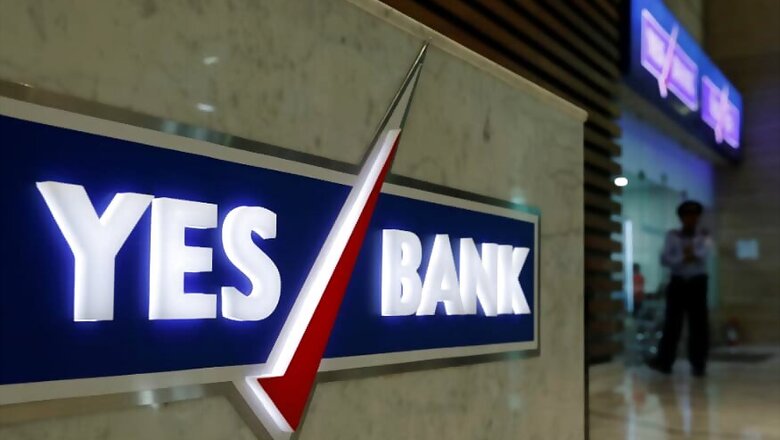
views
Yes Bank Ltd shares opened the trading session lower by 15% on Monday after the private sector lender posted a loss of over Rs 600 crore for the second quarter ended September (Q2) due to higher provisions and one-time deferred tax assets adjustment. However, the stock trimmed all its losses to trade in the positive territory just within an hour of trade.
At 9:50 am, shares of Yes Bank were trading at Rs 67.60, up 1.5%, after hitting lows of Rs 56.65 in opening trade. Notably, the stock has recovered over 51% from its all-time lows seen early in October.
The Yes Bank management, while addressing a post-earnings conference call, said: “Lower net interest income (down 9.6% year-on-year), fee income and marginal hike in operating expenses resulted in impacted bottomline. There was one-off impact of Rs 709 crore due to deferred tax assets adjustment, which resulted in a loss during the quarter gone by.”
The bank also reported that asset quality deteriorated further with gross non-performing asset (NPA) ratio falling 238 basis points to 7.39% in the September quarter compared with the previous quarter, while net NPA ratio increased 144 bps to 4.35%.
Brokerages remained bearish on the Yes Bank stock with most of them giving a ‘sell’ rating due to concerns over asset quality and subdued deposit and loan growth. Domestic brokerage house Kotak Institutional Equities said:
“The events that have been unfolding recently corroborate our longstanding negative stance on the stock. Balance sheet deterioration has been quick, leaving very little time to react to the situation. The recent capital infusion is insufficient for the size of unrecognized problematic loans… We maintain sell with fair value at Rs 55 (unchanged)”.
Prabhudas Lilladher gave a ‘hold’ rating on the Yes Bank stock with a target price of Rs 59. “Higher additions to lower buckets and lumpy exposures remains a big risk to asset quality added by sluggish resolutions. By consolidating the balance sheet, the bank has been able to conserve capital and incremental capital infusion by a large investor will help cushion large hits on balance sheet, but we worry it may not suffice.”













Comments
0 comment